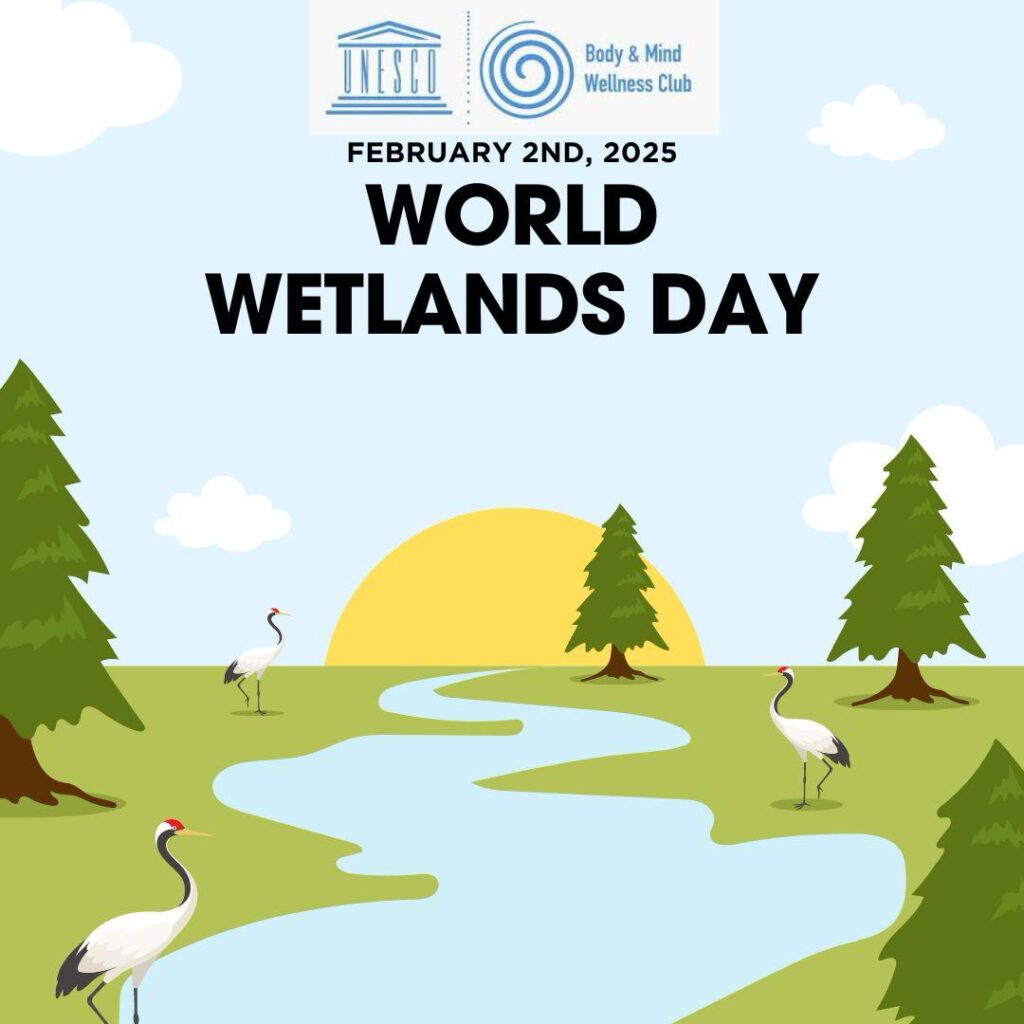
What is World wetlands day?
World Wetlands Day is proclaimed by the UN General Assembly on August 30, 2021, to be held annually on the 2nd of February to celebrate the significance of wetlands, raise awareness, and highlight the importance of their wise use, conservation, and restoration. This day also marks the adoption of the Ramsar Convention on Wetlands in 1971.
What are Wetlands and Why Do We Need to Protect Them?
Wetlands are vital water-based ecosystems that support a range of habitats, including rivers, lakes, and marshes. Even though they only make up 6% of the planet’s surface, they are home to an astounding 40% of plant and animal species, which are essential to our well-being, supply of food, and employment prospects. Unfortunately, because of human activities like agriculture, pollution, and climate change, these regions are disappearing quickly and we have lost about 35% of them in the last 50 years. Poverty is made worse by this fall, which threatens both our well-being and the stability of the economy.
Wetlands and Human Wellbeing:
In addition to the previous issues, wetlands’ degradation poses a severe threat to human health, where decreased water quality and quantity contribute to the spread of waterborne diseases particularly affecting vulnerable nations. Moreover, it has been estimated that about 1.7 million deaths result annually from inadequate water, sanitation, and hygiene, with economic costs approximated at $16 billion due to coastal water pollution. The impact extends beyond coastal areas, as small dams and tropical rice irrigation systems are also linked to diseases. Furthermore, pollutants in water, such as nitrates and arsenic, adversely affect millions of people globally. World Wetlands Day encourages a mental shift to acknowledge, value, and protect natural areas that support life and contribute to the limitation of the occurrence of these issues.
UNESCO Involvement:
UNESCO works together with the Ramsar and World Heritage Conventions to address issues related to wetland management, they also involve communities and raise public awareness in accordance with Sustainable Development Goals 2030. Recognizing the cultural significance of wetlands, UNESCO advocates for the importance of involving indigenous populations in responsible wetland use, acknowledging that these ecosystems are both valuable cultural and ecological assets. Wetlands, with their calm atmosphere, are peaceful refuges for contemplating the beauty of our world. The theme for this year is “Wetlands and Human WellBeing,” a wonderful fit with the goals of UNESCO BMW which is a nonprofit organization that aims to promote peace, sustainability, encouragement of arts and crafts as well as protection of the ecosystem. To achieve these objectives, we carry out a range of initiatives that closely align with today’s celebration like the Eco-Adventure program.. This program emphasizes the fundamental connection between environmental health and human well-being through outdoor activities like hiking to encourage physical, mental, and emotional well-being, we are dedicated to contributing to a more health-conscious and more balanced world for both individuals and the planet.
UNESCO BMW’s Vision:
Our vision mission encompasses three main goals that are also in line with this occasion today and engage people of all ages, especially the youth improvement of the inner ecosystem, enhancement of inner creativity through arts and crafts and the environment, and, lastly inner peace.
By: Yasmeen Hummeida